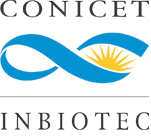
Doctor en Ciencias Biológicas
Investigador Principal
Líneas de investigación:
- Orientación y comunicación en insectos
- Control de la actividad locomotora y la motivación comportamental en insectos
- Bases moleculares y fisiológicas de los procesos sensoriales de insectos
- Efecto de los patógenos y la microbiota sobre el comportamiento y la fisiología de insectos vectores de enfermedades humanas
Realizo investigación desde una perspectiva evolutiva con el objetivo de entender la ecología sensorial de insectos. Mis principales modelos de estudio actuales son insectos que transmiten enfermedades humanas, tales como mosquitos y vinchucas. Dado que el control de estos insectos plaga se realiza mediante el uso de substancias insecticidas que tienden a tornarse ineficaces luego de generar resistencia y que además poseen efectos negativos sobre el ambiente, es necesario desarrollar herramientas de control de plagas de base racional. La comprensión de los aspectos de la biología de vectores descritos anteriormente podrá permitir un desarrollo de métodos de control sostenibles y basados en premisas racionales.
Lorenzo, M.G; Lazzari, C.R. (1996). The spatial pattern of defaecation in Triatoma infestans and the role of faeces as a chemical mark of the refuge. Journal of Insect Physiology 42 (9), 903-907
Lorenzo, M.G; Lazzari, C.R. (1998). Activity pattern in relation to refuge exploitation and feeding in Triatoma infestans (Hemiptera: Reduviidae). Acta Tropica 70 (2), 163-170.
Guerenstein, P.G.; Lorenzo, M.G.; Núñez, J.A.; Lazzari, C.R. (1995). Baker's yeast, an attractant for baiting traps for Chagas' disease vectors. Experientia 51, 834-837.
Pontes, G.B; Bohman, B.; Unelius, C.R.; Lorenzo, M.G. (2008). Metasternal gland volatiles and sexual communication in the triatomine bug, Rhodnius prolixus. Journal of Chemical Ecology 34, 450-457.
Ferreira, R.A; Lazzari, C.R; Lorenzo, M.G; Pereira, M.H (2007). Do haematophagous bugs assess skin surface temperature to detect blood vessels? PLoS One 2 (9), e932.
Vitta, A.C.R; Lorenzo, M.G. (2009). Copulation and mate guarding behavior in Triatoma brasiliensis (Hemiptera: Reduviidae). Journal of Medical Entomology 46 (4) 789-795.
Vitta, A.C.R.; Bohman, B.; Unelius, C.R.; Lorenzo, M.G (2009). Behavioral and electrophysiological responses of Triatoma brasiliensis males to volatiles produced in the metasternal glands of females. Journal of Chemical Ecology 35, 1212-1221.
Zacharias, C.A.; Pontes, G.B.; Lorenzo, M.G.; Manrique, G. (2010). Flight initiation by male Rhodnius prolixus is promoted by female odors. Journal of Chemical Ecology 36, 449-451.
Lazzari, C.R.; Pereira, M.H.; Lorenzo, M.G. (2013). Behavioural biology of Chagas disease vectors. Memorias do Instituto Oswaldo Cruz 108 (suppl 1), 34-47.
Zermoglio, P.F.; Latorre-Estivalis, J.M.; Crespo, J.E.; Lorenzo, M.G.; Lazzari, C.R. (2015). Thermosensation and the TRPV channel in Rhodnius prolixus. Journal of Insect Physiology 81, 145-156.
Guarneri, A.A.; Lorenzo, M.G. (2017). Triatomine physiology in the context of trypanosome infection. Journal of Insect Physiology 97, 66-76 .
Barrozo, R.B.; Reisenman, C.E.; Guerenstein, P.; Lazzari, C.R.; Lorenzo, M.G. (2017). An inside look at the sensory biology of triatomines. Journal of Insect Physiology 97, 3-19.
Latorre-Estivalis, J.M.; Robertson, H.M.; Walden, K.K.O.; Ruiz, J.; Gonçalves, L.O.; Guarneri, A.A.; Lorenzo, M.G. (2017). The molecular sensory machinery of a Chagas disease vector: expression changes through imaginal moult and sexually dimorphic features. Scientific Reports 7 (1), 40049.
Bohman, B.; Weinstein, A.M.; Unelius, C.R.; Lorenzo, M.G. (2018). Attraction of Rhodnius prolixus males to a synthetic female-pheromone blend. Parasites & Vectors 11, 418. https://doi.org/10.1186/s13071-018-2997-z
Latorre-Estivalis, J.M.; Sterkel, M.; Ons, S.; Lorenzo, M.G. (2020). Transcriptomics supports local sensory regulation in the antenna of the kissing-bug Rhodnius prolixus. BMC genomics 21, 101. https://doi.org/10.1186/s12864-020-6514-3
Mota, T.; Vitta, A.C.R.; Lorenzo-Figueiras, A.N.; Barezani, C.P.; Zani, C.L.; Lazzari, C.R.; Diotaiuti, L.; Jeffares, L.; Bohman, B.; Lorenzo, M.G. (2014). A multi-species bait for Chagas disease vectors. PLoS Neglected Tropical Diseases 8 (2), e2677.
Tallon, A.K.; Lorenzo, M.G.; Moreira, L.A.; Martinez Villegas, L.E.; Hill, S.R.; Ignell, R. (2020). Dengue infection modulates locomotion and host seeking in Aedes aegypti. PLoS Neglected Tropical Diseases 14 (9), e0008531.
Latorre-Estivalis, J.M.; Almeida, F.C.; Pontes, G.; Dopazo, H.; Barrozo, R.B.; Lorenzo, M.G. (2021). Evolution of the insect PPK gene family. Genome Biology and Evolution 13 (9), evab185. https://doi.org/10.1093/gbe/evab185
Marliére, N.P.; Lorenzo, M.G.; Guarneri, A.A. (2021). Trypanosoma cruzi-infected Rhodnius prolixus endure increased predation facilitating parasite transmission to mammal hosts. PLoS Neglected Tropical Diseases 15 (7) e0009570.
Pontes, G.; Latorre-Estivalis, J.M.; Gutiérrez, M.L.; Cano, A.; de Astrada, M.B.; Lorenzo, M.G.; Barrozo, R.B. (2022). Molecular and functional basis of high-salt avoidance in a blood-sucking insect. IScience 25 (7), 104502.
Mosquera, K.D.; Khan, Z.; Wondwosen, B.; Alsanius, B.; Hill, S.R.; Ignell, R.; Lorenzo, M.G. (2023). Odor-mediated response of gravid Aedes aegypti to mosquito-associated symbiotic bacteria. Acta Tropica 237, 106730.
Mosquera, K.D.; Martínez Villegas, L.E.; Rocha Fernandes, G.; Rocha David, M.; Maciel-de-Freitas, R; A. Moreira, L.; Lorenzo, M.G. (2023). Egg-laying by female Aedes aegypti shapes the bacterial communities of breeding sites. BMC Biology 21 (1), 97.
Lorenzo, M.G.; Fernandes, G.R.; Latorre‐Estivalis, J.M. (2024). Local age‐dependent neuromodulation in Rhodnius prolixus antennae. Archives of Insect Biochemistry and Physiology 115 (4), e22106.
Marliére, N.P.; Lorenzo, M.G.; Guarneri, A.A. (2024). The Rpfor gene modulates the locomotory activity and host‐seeking behaviour of Rhodnius prolixus. Insect Molecular Biology, DOI: 10.1111/imb.12952

Colaboradores
Romina Barrozo, DBBE-UBA, IBBEA-CONICET
Jose Manuel Latorre Estivallis, IFIBYNE-UBA-CONICET
Alessandra Guarneri, FIOCRUZ-Minas, Brasil
Claudio Lazzari, IRBI, Universidad de Tours, Francia
Rickard Ignell, Plant Protection Department, SLU, Suecia
Josefina del Mármol, Department of Biological Chemistry & Molecular Pharmacology, Harvard Medical School, EEUU
María Soledad Leonardi, IBIOMAR-CONICET


